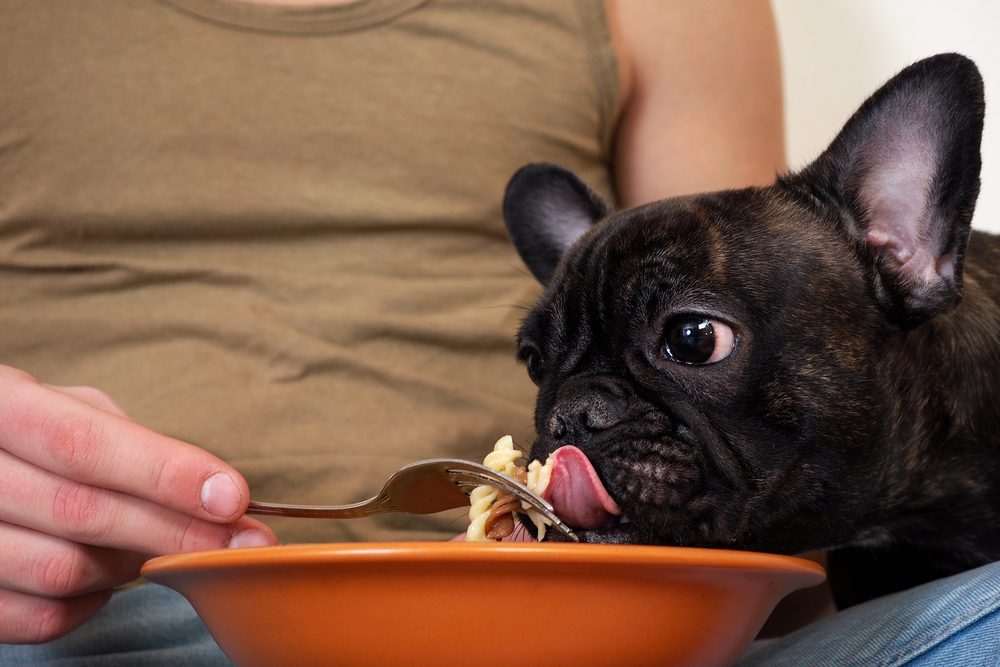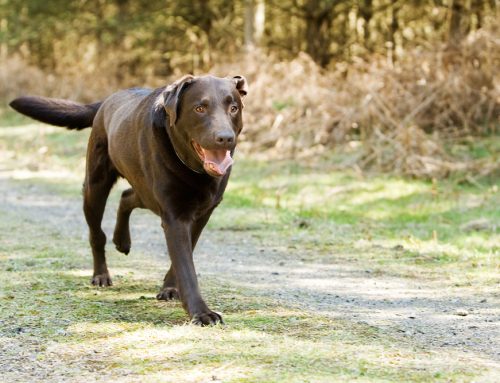As a dog owner, you’ve likely had to manage a bout or two of diarrhea. The condition is a malady that frequently affects dogs and can be caused by benign issues as well as life-threatening illnesses. Our American Animal Hospital Association (AAHA)-accredited team at Boca Midtowne Animal Hospital wants to help by providing dog diarrhea details you should know.
Dog diarrhea causes
Numerous conditions can result in diarrhea. Some common causes include:
- Dietary indiscretion — Any sudden change in a dog’s diet can lead to gastrointestinal upset, including diarrhea.
- Infectious disease — Viral diseases, such as parvovirus and canine distemper, and bacterial diseases, such as Salmonella and Eshcherichia coli, can cause damage in the gastrointestinal tract, leading to diarrhea.
- Parasites — Intestinal parasites, including whipworms, roundworms, hookworms, Giardia, and coccidia, can cause diarrhea, especially in young puppies and immunocompromised dogs.
- Toxins — Substances toxic to dogs, including chocolate, alcohol, and onions, can cause gastrointestinal irritation, leading to diarrhea.
- Intestinal obstruction — When a dog ingests a foreign object or develops bloat, diarrhea can result. Check out Dr. Man’s video about an intestinal obstruction case we treated.
- Systemic disease — Diseases, such as liver disease, kidney disease, and pancreatitis, can cause diarrhea. This video provides additional information about pancreatitis.
- Food allergies — Some food allergies can result in diarrhea.
- Stress — Some dogs have diarrhea in response to stress.
Dog diarrhea characteristics
Diarrhea is classified depending on where the condition originated in the gastrointestinal tract. Because different intestinal tract segments perform different functions, ailments affecting them can result in different signs.
- Small bowel diarrhea — Small bowel diarrhea is generally watery in consistency and is extremely malodorous. The dog often defecates at the same frequency but the amount is much larger. If the condition becomes chronic, dehydration and weight loss are likely to occur.
- Large bowel diarrhea — Large bowel diarrhea typically causes the dog to have an increase in defecation frequency but the amounts are smaller. This diarrhea type is often accompanied by urgency, and fecal accidents may occur. Straining is commonly seen in large bowel diarrhea, and the feces may be covered in mucus or blood.
Dog diarrhea concerns
Not every dog diarrhea incident is cause for concern, but certain situations should prompt you to seek immediate veterinary care. These include:
- Additional signs — If your dog has diarrhea and is also showing other signs, including vomiting, lethargy, fever, distended abdomen, or pain, they should be evaluated by a veterinary professional as soon as possible.
- Toxin ingestion — If you know or suspect your pet has ingested a toxic substance, you should immediately call Boca Midtowne Animal Hospital or Animal Poison Control to receive expert advice on how to proceed.
- Foreign body ingestion — If you know or suspect your pet has ingested a foreign object, they may require surgery to remove the item.
- Abnormal gums — If your dog’s gums are pale, white, blue, or gray in color, they need immediate veterinary attention.
- Chronic condition — If your dog’s diarrhea persists for more than 24 hours, they should be evaluated by a veterinarian.
Dog diarrhea diagnosis
Diagnosing the cause of your dog’s diarrhea may require several tests. Steps include:
- History — A comprehensive history, including what your dog usually eats, if they are on any medications, if they have been exposed to any sick pets, how long they have had diarrhea, and what other signs they are exhibiting, is important to help our veterinary professionals know what diagnostics are necessary.
- Blood work — A complete blood count and a biochemistry profile can help provide an overall picture of your dog’s health, and determine if they are experiencing an infection, electrolyte imbalance, or organ abnormalities.
- Fecal check — Your dog’s feces may be evaluated for parasites.
- Imaging — X-rays or an ultrasound may be necessary to determine if your dog has ingested a foreign object.
- Food elimination diet — If a food allergy is suspected, your dog may need to go on a food elimination trial to determine the problem ingredient.
Dog diarrhea management
If your dog has a diarrhea episode and otherwise appears healthy and happy, you can manage the situation at home. Treatment includes:
- Withholding food — Take away your dog’s food to allow their gastrointestinal tract time to settle. Ensure they have fresh water available at all times.
- Avoiding medications — Don’t administer over-the-counter diarrhea medications for humans since these products can be contraindicated in dogs.
- Feeding a bland diet — If your dog remains diarrhea-free for 12 hours, you can offer them a bland meal such as boiled chicken and rice.
If your dog needs veterinary attention to manage their diarrhea, treatment will depend on the underlying issue. Intravenous fluids are frequently necessary to replace fluid and electrolyte losses and to provide supportive care.
Dog diarrhea prevention

While not every dog diarrhea episode can be prevented, you can take certain measures to decrease your dog’s risk. These include:
- Feeding them an appropriate diet — Avoid feeding your dog table scraps to prevent gastrointestinal irritation.
- Changing their diet gradually — If you have to change your dog’s diet, gradually mix their new food with their old to allow their gastrointestinal tract time to adjust.
- Vaccinating them — Ensure your dog’s vaccinations are kept up to date to avoid preventable diseases.
- Preventing parasites — Provide year-round parasite prevention medication to protect your pet from parasites. Check out our previous blog post for further information about pet parasite control.
- Securing garbage — Keep your garbage in sealed containers to prevent dumpster diving.
Dog diarrhea can be problematic, but having this information can help you address the issue if your dog is affected. If you are concerned about your dog’s diarrhea, contact our Fear Free team at Boca Midtowne Animal Hospital so we can determine what is causing their gastrointestinal disturbance and remedy the problem.








Leave A Comment